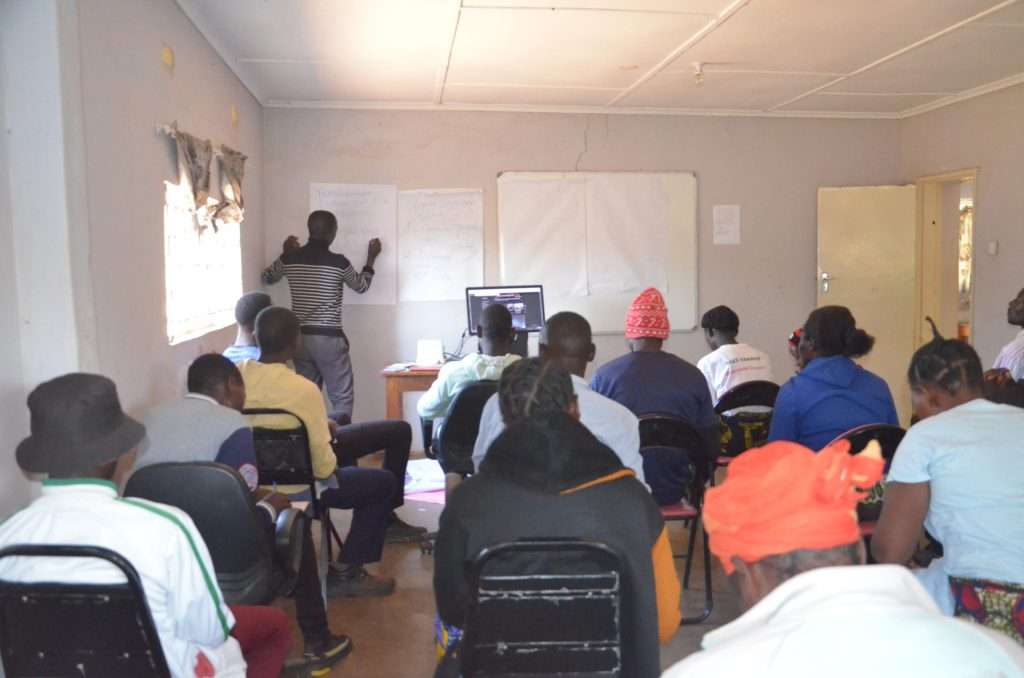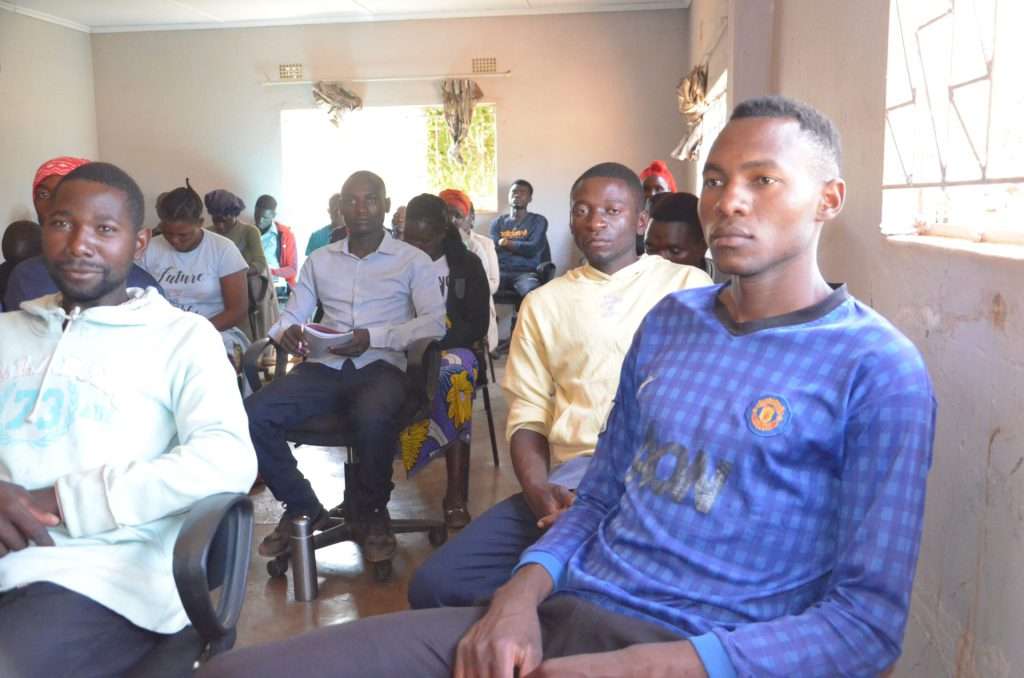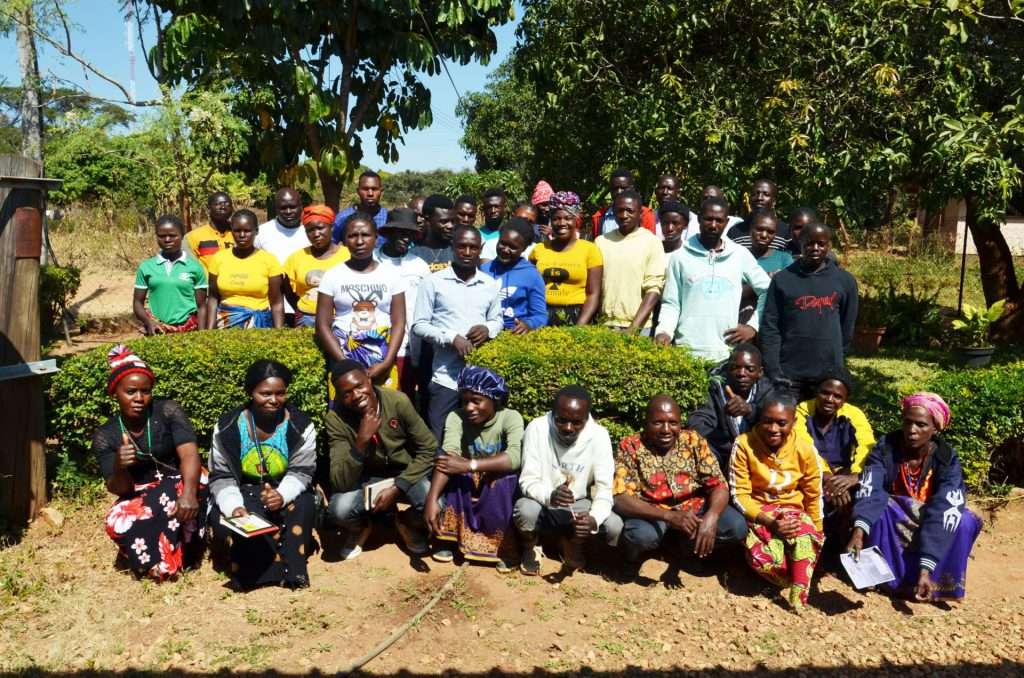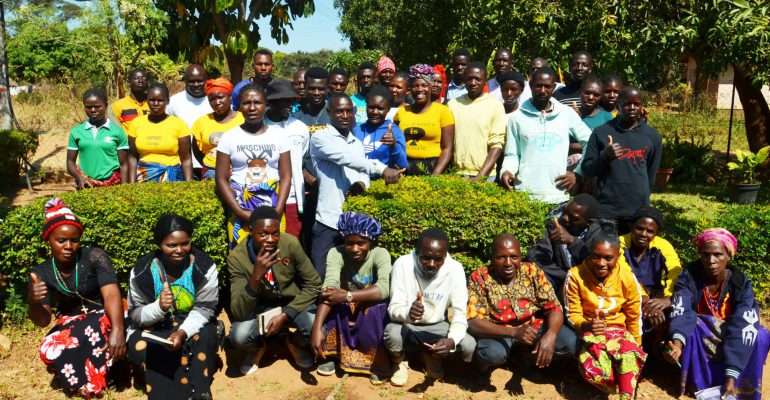In the year 2022-23 African Jesuit AIDS Network (AJAN) set out to listen and learn from the young people, by putting them at the center of our intervention to impact our communities. It is in line with the above undertaking that Chikuni Home Based Care (CHBC) from the 19th to 20th May, 2023 implemented a beneficiaries entrepreneurial training programme in pig production. The participants were thirty (30) young people, one male and one female representing 15 communities plus fifteen (15) Matrons/ Patrons who will be key in offering guidance to the young people.

The sole purpose of the training was to assist young people get more knowledge about pig production and management. As they are the first set of beneficiaries for the pig project, the training was a requisite in preparation for the actual activity. The training highlighted pig production, breed types and breed selection, feed and feed system, pig housing, vaccinations and disease control. Breed types and selection was important as from the onset the young people will be able to select a breed that will attract good market price with the understanding that breeds will either provide them with bacon and pork. The significance of controlling the type of breed to specialise and continue breeding. The focus is not to ignore local breed but to venture into a breed that assures quality product for easy sales.
The Feed and feeding system remain key, paying particular attention made to individual feeding requirement, method of feeding and daily feeding management. Formulating ratio for pigs with necessary nutritional food content of carbohydrates, proteins, fats, minerals, vitamins and other feed.
Currently, housing for many small pig farmers is the least of their concern, with us it will require a proper designed piggeries and equipment that will play a role in the safe upkeep, maintaining required temperatures and for easy disease control. Pigs are sensitive to variations to temperature and the requirement for better ventilation and sanitation arrangement. Particular care will be exercised when they are farrowing and better structures will ensure their upkeep is intact. For the essence of this project and as contribution by young people, local materials will be used as adequate housing will be made from bush poles, mud walls and thatched roofs.

During the training, HIV was briefly discussed and how the project was going to be beneficial to the young people and community in the long-run. Understanding the impact pig production will evoke among youths living with HIV. As well as the benefit that will be enjoyed by those still fighting the impacts of the trails left by the devasting effects of the disease. Pig production for us, is seen as a way to minimise the challenges of health, food security, social and psychological impacts. It will be a catalyst to drive better sources of income and skill development. Nevertheless, engaging in pig production plays an important role in an individual’s life. Confidently, this good source of income will ensure proper diets medical expenses be covered with less difficult.
Agricultural wise pig manure is a good source of organic fertiliser which can boost agricultural products. The importance of pig rearing is not only concerned with converting inedible food to more digestible protein but also with generating manure that is a precious resource of nutrients when there is no chemical fertilizer. Pig manure contains nearly all nutrients required by plants as well as a large proportion of organic matters, which provides multiple benefits including; improvement of soil texture and quality, improves water uptake and holding capacity, niche for fauna and encourages growth for flora, organic matter provide PH buffer for soil and sustainable production from the land. Pig manure can also be used as a source of energy by using biogas digester. In this light, pig manure can be used in combating climate change effects as it is user friendly to the environment.

The young people showed how educative and shared a change in their view of pig production as a project. Appreciating the knowledge and skills they have acquired, which will not only benefit them for this particular project will shape them a lifetime. Youths also shared their concern over the local market price. Suggestions were made that another training in value addition is inevitable. Processing the meat into sausage, bacon and other by products would increase their benefit and excel their profits.
We are looking towards the positive changes that the Pig production project will have on our young people and rural community. The skill development and entrepreneur insightfulness will provide innovativeness and grasping new challenges that will improve their wellbeing and communities involved. As the project has an ability to uplift one’s financial status through pigs and piglets, fresh meat products sales and the manure from pigs’ waste. Without denying the expected improvement of nutritional value and its agricultural benefit that cannot be underestimated. The economical and developmental value that it will be brought in the community. The empowerment the training has brought can be recognized as they are already anticipating ways to strengthen and fight for better market price for their produce.
By, Milimo Catherine,
Projects Coordinator, Chikuni Home Based Care (CHBC), Zambia.


Comments are closed.